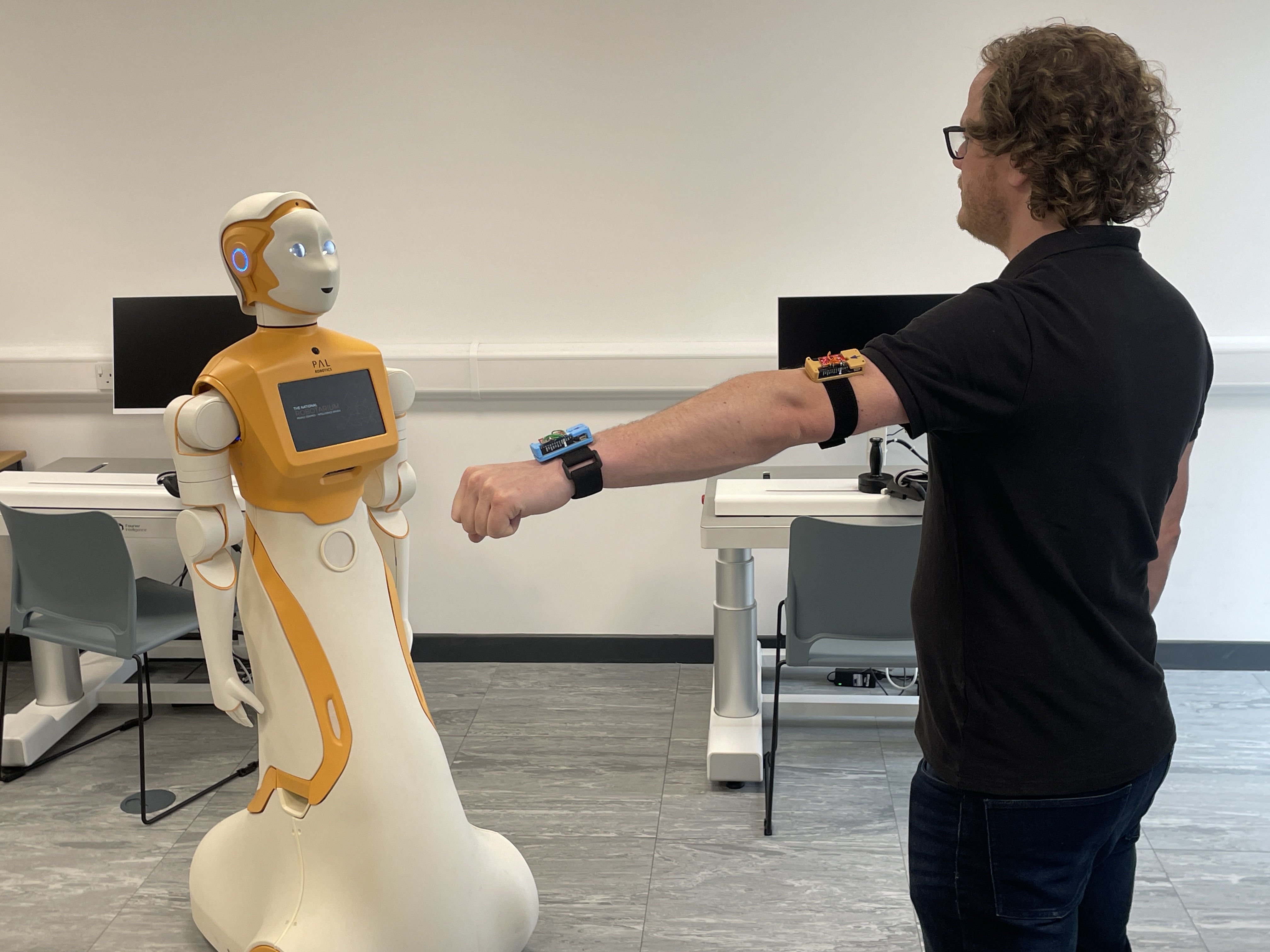Long-Term Robot-Led Recovery After Critical Injury
My PhD project looks to develop intelligent decision-making to support long-term recovery from upper-limb injuries using socially assistive robots.

This PhD research project focuses on developing a social robot platform to support long-term upper limb recovery after critical injuries such as strokes, fractures, or surgeries. Social robots are chosen for their ability to engage users more effectively than virtual agents, and their human-like embodiment which allows for rich social interactions such as demonstrating exercises, giving verbal feedback, and visually reporting progress. The project aims to generalize the robot’s application across various upper limb injury populations and personalize interactions based on individual recovery rates and needs.
Our research process has involved design workshops with expert physiotherapists to create a generalized action framework for the robot, incorporating high-level exercise session phases and options tailored to different recovery stages. Wearable sensing technologies, such as Inertial Measurement Units (IMUs), and speech are used to provide the robot with perception of the user’s state. We aim to develop and evaluate intelligent decision-making processes by simulating this data using recovery scenarios and leveraging expert insights, refining the robot’s behavior policies before deployment in real-world community rehab centers.
Technical components used throughout this project include programming in Linux and Python for robotics, containerization technologies, machine learning techniques, large language models, and wearable sensing.
The project is funded by EPSRC and is conducted through the Centre for Doctoral Training in Robotics and Autonomous Systems (CDT-RAS) (Heriot-Watt University and the University of Edinburgh). My Supervisors are Prof. Lynne Baillie, Prof. Susan shenkin, and Dr Marta Romeo.
Human-Robot Interaction Personalisation Machine Learning Large Language Models Social Robots Design Wearable Sensing